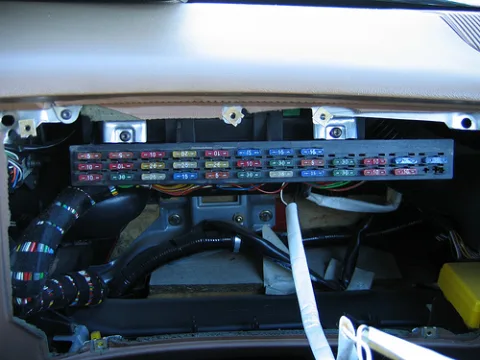Electricity is a mystifying force.
You would think that throughout the world there would be standardization everywhere — because touching the wrong live wire can result in burns, shocks, or even death.
When you take into consideration that, even in the RV world, you are likely to run into a number of different electrical systems, the potential for harm is everywhere.
If you know anything about electrical systems, you will rapidly discover that the only thing standard is the fact that nothing is standard between household systems, automotive systems, and marine systems. Each separate area does things its own way and some areas will conflict with other types of systems.
Because of this fact, it is critical that the prudent RV owner understands that if you are not 100% confident in what you are doing, leave electrical issues to the professionals.
Besides injury or death, you could easily destroy thousands of dollars in RV electrical gear by doing something wrong.
12-Volt DC Systems
12-volt DC automotive circuitry is unlikely to give you a shock.
Shorting a hot wire can easily cause a fire, but beyond the possibility of a localized burn, 12-volt DC systems are relatively safe.
In today’s RVs you can assume that any electrical panel that is protected by removable fuses is a 12-volt DC panel.
How To Determine If A Fuse Is Burned Out
Determining if a fuse is burnt out or not will require either a multimeter voltage tester, or a 12-volt DC test light. Both are inexpensive and available at any auto parts store.
To test a fuse to see if it is good:
- Probe the fuse twice — once on each end (or connection) with the test light with the ground wire clipped to the common, or ground lug, on the panel.
- If the test light illuminates when you touch both ends of the fuse, the fuse is good.
Smart Glow Fuses Make Finding Burnt Fuses Simple
There is a new product on the market called smart glow fuses. They remove the need for a test light or meter.
Smart glow fuses have a built-in LED light that light up when the fuse is burnt out. Smart glow fuses are easily visible — day or night.
When you open the fuse panel there is no more searching to figure out which fuse protects a particular accessory. The guilty fuse will be glowing brightly so you can go right to the source of the problem.
RV Circuit Breakers Protect Your AC System
110-volt AC systems in today’s RVs are protected by circuit breakers.
Most of the time, you will find the AC circuits and circuit breakers located in a separate panel. This helps you, the RV owner, in determining between the 12-volt wiring and the 110-volt wiring.
110-volt wiring is protected by a removable panel so that the average RV owner won’t be placed in harm’s way. Handling 110-volt wiring requires specialized knowledge. Mistakes can be deadly.
What Type Of Electrical System Does Your RV Have?
There are RV generators that are equipped with 220-volt AC outlets. It is unlikely that the average RV will have any 220 volt AC appliances, although it is possible that you’ll see them in high-end motorhome coaches.
You may find electric heating elements in the higher end coaches that require 220-volt AC circuits. It would be rare, and unlikely, that you will find a campground or resort that has 220-volt AC service available.
Diesel pusher motorhomes, in some instances, make use of 24-volt DC starters to start the engine by connecting two 12-volt batteries in series. A 24-volt DC battery can, in some conditions, give you a shock. Usually, a minor tickle can be felt if you’re on damp or wet ground. A short will be more dangerous, because the spark can be significant. Those are the different types of systems you’re likely to find in RVs.
Color Codes Are Not All Equal In The RV Electrical World
Now for some of the conflicting issues between color codes:
- 110-volt AC usually has: white – common; green – ground; black – hot
- 12-volt DC automotive wiring generally makes use of black for ground and red for hot.
- 12-volt DC marine is a world all their own: white – hot; black – ground.
- 220-volt AC uses: green – ground; white – common; black – hot; red – hot (it uses 2 legs of 110-volt AC to create the 220-volt AC).
Looking at the list above, you see obvious conflicts in the use of colors. What is ground, or common, on one type of circuit can easily be hot and dangerous on another. Above all, you should never assume that the color of the wire is accurate. Very often, an accessory is somewhat of a crossover, since it can be used in the RV, automotive, and marine worlds. The color code could be any of the 3 types of systems.
Have A Healthy Respect For Your RV’s Electrical System
Hopefully, all this information has you thoroughly confused. That is my intent. The dangers when working on electrical systems are many. If you don’t fully understand what you’re working with, the potential and likelihood that you will be harmed or you will do more damage than good is very real.
Always read all installation instructions when installing any RV electrical items. Most of all, don’t be macho and insist on doing it yourself. The wise RV owner will gladly seek assistance rather than risk injury or damage.




